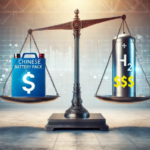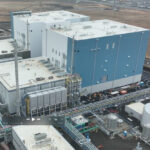The Growing Importance of Energy Efficiency
As the world grapples with the challenges of climate change, energy efficiency has become a top priority for individuals, businesses, and governments alike. With the increasing demand for energy and the subsequent strain on the environment, it’s essential to explore ways to reduce our energy consumption and carbon footprint. One of the most effective ways to do so is by adopting energy-efficient appliances in our daily lives.
What Are Energy-Efficient Appliances?
Energy-efficient appliances are designed to use significantly less energy than traditional appliances, without sacrificing performance or quality. These appliances use advanced technologies, such as smart sensors, motors, and optimized components, to minimize energy consumption and reduce waste. By choosing energy-efficient appliances, we can significantly reduce our energy bills and carbon footprint.
The Benefits of Energy-Efficient Appliances
Environmental Benefits
Reducing energy consumption is crucial for mitigating climate change. Energy-efficient appliances can help reduce greenhouse gas emissions, which are responsible for global warming. By using less energy, we can lower our carbon footprint and contribute to a cleaner environment.
Economic Benefits
Energy-efficient appliances can also save you money on your energy bills. According to the U.S. Department of Energy, energy-efficient appliances can save homeowners up to $400 per year on their energy bills. This can be a significant amount, especially for households with multiple energy-intensive appliances.
Social Benefits
Energy-efficient appliances can also have social benefits, such as improving indoor air quality and reducing noise pollution. By using appliances that are designed to be more efficient, we can create a healthier and more comfortable living space for ourselves and our families.
How to Choose the Right Energy-Efficient Appliances
Look for the Energy Star Label
When shopping for new appliances, look for the Energy Star label, which is a certification program run by the U.S. Environmental Protection Agency (EPA). The label indicates that the appliance meets energy efficiency standards set by the EPA, which can help you save energy and reduce your carbon footprint.
Check the Appliance’s Energy Consumption
Check the appliance’s energy consumption by looking for the wattage rating, which is usually listed on the packaging or in the product description. A lower wattage rating typically indicates a more energy-efficient appliance.
Conclusion
In conclusion, energy-efficient appliances are an essential step towards reducing our energy consumption and carbon footprint. By choosing appliances that are designed to be more efficient, we can save money, improve our living space, and contribute to a cleaner environment. With the right knowledge and resources, we can make a significant impact and create a more sustainable future for ourselves and future generations.
FAQs
Q: What is the difference between energy-efficient appliances and traditional appliances?
A: Energy-efficient appliances use advanced technologies to minimize energy consumption, whereas traditional appliances consume more energy to perform the same tasks.
Q: Are energy-efficient appliances more expensive than traditional appliances?
A: While energy-efficient appliances may be more expensive upfront, they can save you money in the long run through reduced energy bills and extended lifespan.
Q: How do I know if an appliance is energy-efficient?
A: Look for the Energy Star label, check the appliance’s energy consumption, and read product reviews to ensure the appliance is designed to be energy-efficient.
Q: Can I still use my existing appliances?
A: Yes, you can continue to use your existing appliances, but consider replacing them with energy-efficient alternatives when they need to be replaced to maximize energy savings and environmental benefits.







